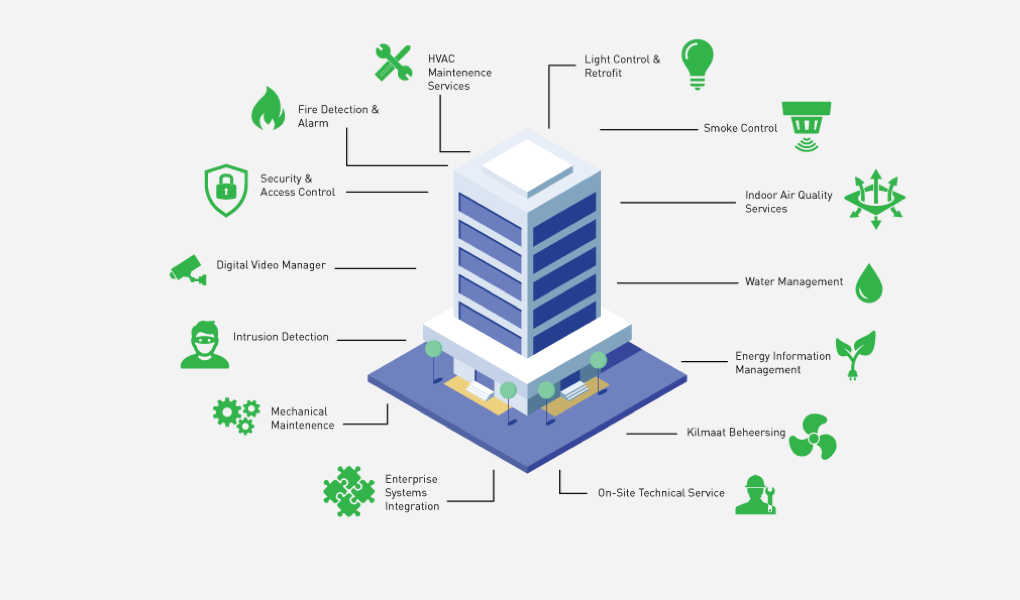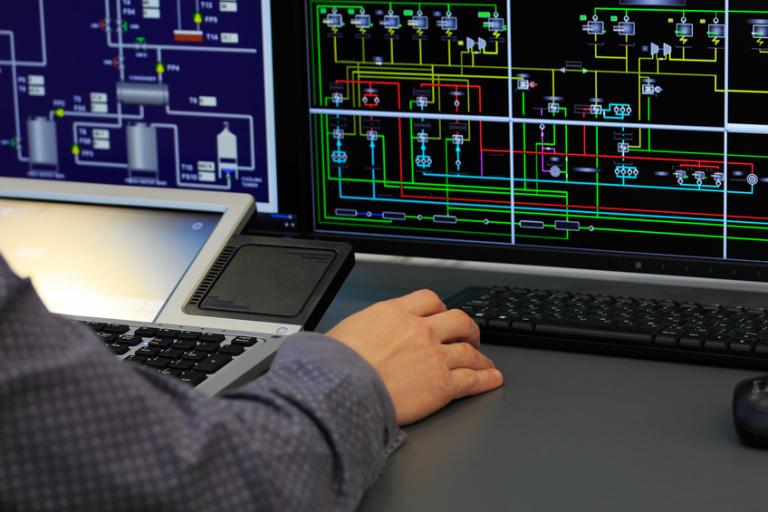An HVAC control system, also known as a Building Automation System (BAS) or Building Management System (BMS), is a centralized system that monitors and controls heating, ventilation, and air conditioning (HVAC) equipment in commercial, industrial, and residential buildings. It is designed to optimize energy efficiency, occupant comfort, and system performance by regulating and coordinating the operation of HVAC components.

Functionalities of an HVAC control system:
- Temperature Control: Modulating heating and cooling based on temperature setpoints and occupancy conditions.
- Ventilation Control: Adjusting ventilation rates to maintain indoor air quality and optimize energy consumption.
- Occupancy-based Control: Adapting HVAC settings based on occupancy levels in different zones or areas of the building.
- Time Scheduling: Predefining HVAC operation schedules to align with building occupancy and energy demand profiles.
- Demand-based Control: Modulating HVAC operation based on real-time energy demand or pricing signals.
- Setpoint Optimization: Dynamically adjusting temperature and humidity setpoints based on external conditions and occupancy patterns.
- Energy Monitoring and Reporting.
- Integration and Connectivity.
Benefits of HVAC Control Systems:
- Energy Efficiency: HVAC control systems optimize energy use by aligning HVAC operation with building needs, occupancy patterns, and environmental conditions, resulting in energy savings and reduced operating costs.
- Improved Comfort: Precise control and monitoring of temperature, humidity, and air quality parameters enable consistent and comfortable indoor conditions for occupants.
- System Performance Optimization: The control system optimizes the operation of HVAC equipment, ensuring efficient and reliable performance, reducing maintenance needs, and extending equipment life.
- Centralized Monitoring and Control: The centralized nature of the control system allows for real-time monitoring, remote access, and the ability to respond quickly to system faults, alarms, or abnormal conditions.
- Data Analytics and Insights: HVAC control systems provide data analytics capabilities, allowing facility managers to analyze energy usage, identify trends, and make informed decisions for further energy optimization.
- Occupant Comfort and Productivity: Maintaining optimal indoor conditions contributes to occupant comfort, satisfaction, and productivity in commercial and residential spaces.



